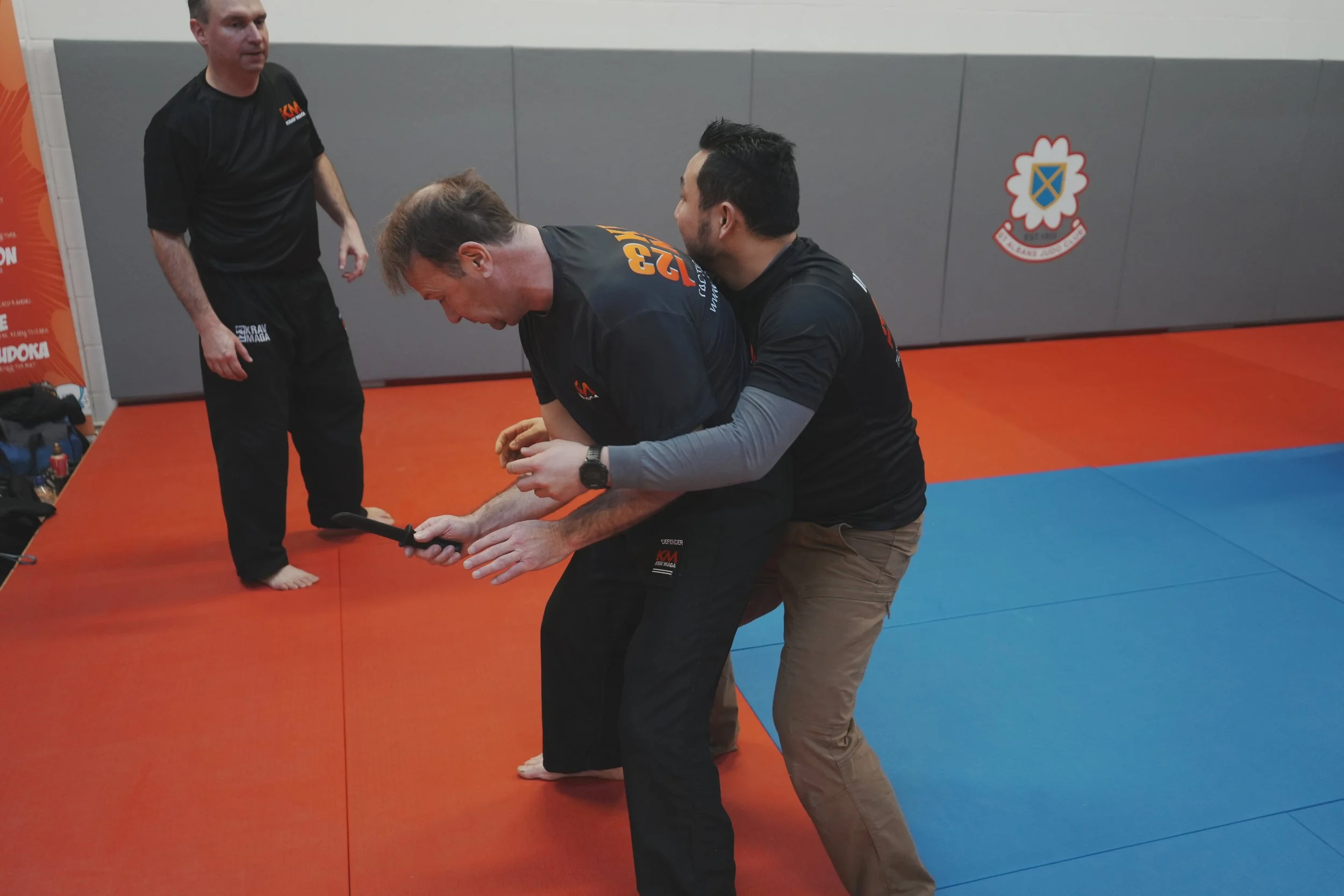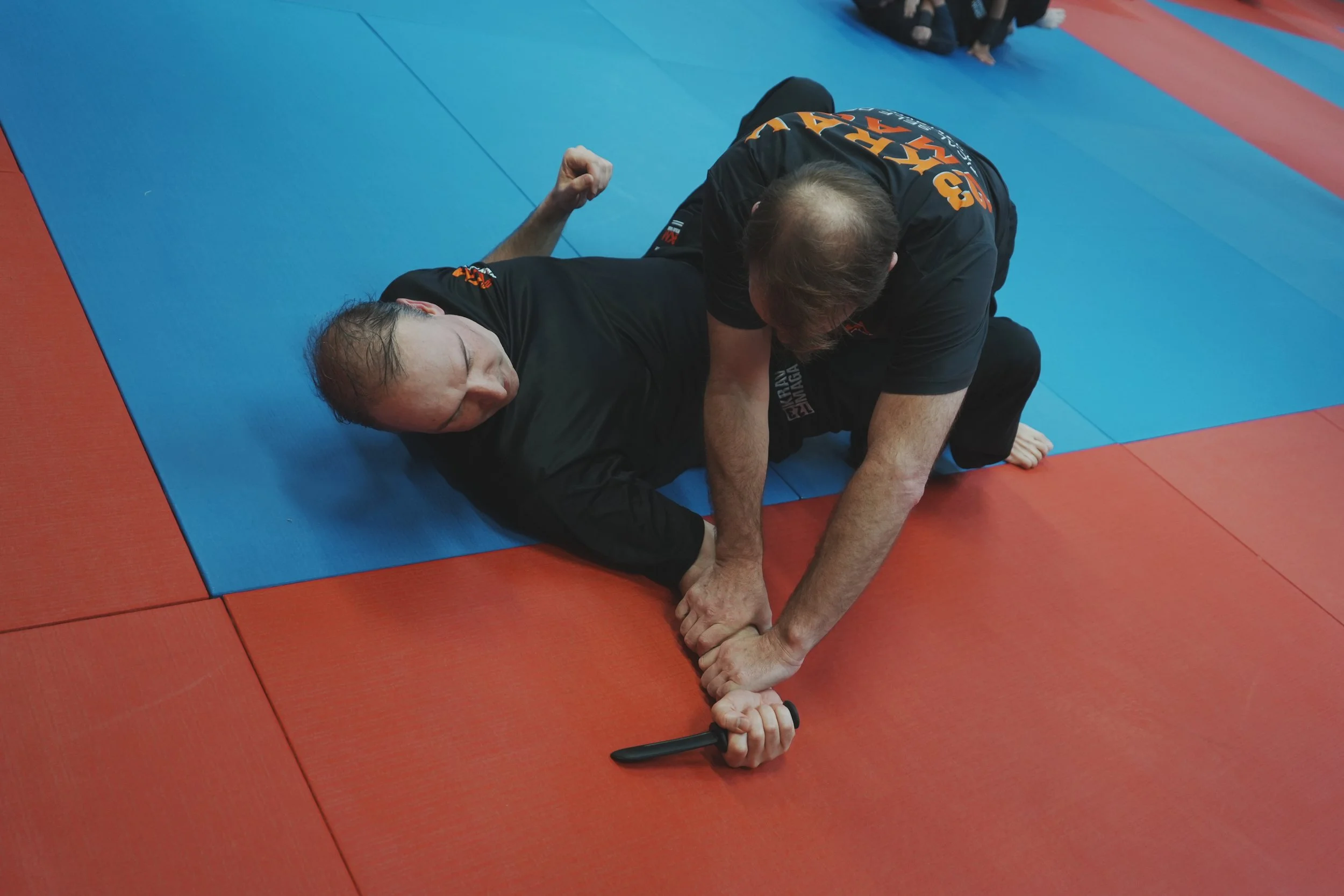
Defending Knife Threats
In this complimentary guide, you will discover crucial strategies from certified self-defense experts on how to defend against knife threats.
How to maintain composure during a confrontation and prevent freezing.
The most effective methods to create distance between you and an assailant.
How to quickly determine whether to escape or defend yourself when making a split-second decision.
ABOUT THE AUTHOR
-
-
Sahanshil (Sonny) Rai
DIRECTOR, CHIEF INSTRUCTOR
-
Dear Local Resident,
Have you ever asked yourself:
What should I do if someone threatens me with a knife?
How to stay calm and not panic if I’m faced with a knife-wielding attacker?
Are self-defence classes effective in preparing for potential knife threats?
If so, you’re in the right place.
Understanding how to handle knife threats can significantly enhance your personal safety and confidence in public spaces. This guide provides practical advice, expert insights, and essential skills that are critical in today's world. By reading this guide, you equip yourself with the knowledge and tools needed to respond effectively to knife threats, making you safer and more prepared in potentially dangerous situations.
Frequently Asked Questions (FAQs)
What should I do if I am confronted by someone with a knife?
First and foremost, prioritise your safety by creating distance between you and the attacker. If possible, escape to a safe location. Avoid confrontation and try to calmly negotiate or de-escalate the situation if there's a chance.
How can I increase my awareness to avoid potential knife threats?
Stay alert and observe your surroundings, especially in crowded places. Avoid distractions like using a mobile phone while walking, and familiarise yourself with areas with higher risks of violence.
What are some signs that might indicate someone is carrying a knife?
Look for suspicious behavior such as someone constantly adjusting their waistband or looking nervous. A visibly hidden hand or clothing that may conceal a weapon should raise awareness.
Are there self-defence techniques specifically for knife attacks?
Yes, self-defence systems like Krav Maga offer specific training for situations involving a knife. They focus on disarming techniques, using personal items as defence, and finding the quickest escape route.
What are the legal implications of defending myself against a knife attack?
Laws vary by location, but generally, you are allowed to defend yourself with reasonable force if directly threatened. It is crucial to understand local laws to know what constitutes self-defence.
How practical is it to carry a personal defence weapon for knife attacks?
UK law strictly prohibits carrying any item in public with the intention of using it for self-defence, as this makes it an offensive weapon, regardless of what the item is. Personal defence items like loud whistle, personal alarm or improvised everyday items that you have readily available such as, keys, bag, pen, umbrella etc. can be used as a last resort.
Can taking self-defence classes improve my chances of surviving a knife attack?
Yes, self-defence classes can enhance your physical and mental readiness, teaching practical techniques and strategies to handle such dangerous situations safely.
What are the psychological effects after experiencing or witnessing a knife attack?
It's common to experience stress or trauma after such events. Seeking support from professionals, talking to friends or family, and participating in support groups can be beneficial for recovery.
What to do after being involved in a knife attack?
If you are involved in a knife attack here are the lists to consider:
Get to a safer area away from attacker if possible
Check for potential injuries around the vital areas in the body. Some wounds may not be readily apparent but could be serious.
Seek immediate medical attention; first aid. Stop any bleeding or cover any wounds.
Document the incident if it is possible ; description of the attacker, his possessions, his actions, vehicle description if relevant, location etc.
Call emergency services. Provide documented details of the incident; how many victims, or number of attackers, location etc.
Preserve Evidence. Avoid washing clothes or potential key evidence until advised by authorities.
Inform someone. Notify a trusted friend or family member about what happened so they can support you during this time.
Seek Support. Contact a counsilor or support group to help you process the emotional and psychological impact of the attack
Cooperate with Authorities. Work with law enforcement for investigation purposes by providing them with all the necessary information and evidence.
Review Personal Safety Measures. Consider taking self-defence classes or seeking resources to improve your personal safety in the future.
Book a free consultation
Let's dive straight in. Your goals matter, and we’re here to help you crush them. Book a free 10-minute phone consultation with us. This is your chance to discuss your aspirations, challenges, and how we can tailor our approach to suit your needs. It’s time to take that first step towards achieving your potential. Are you ready? Let's get started!





